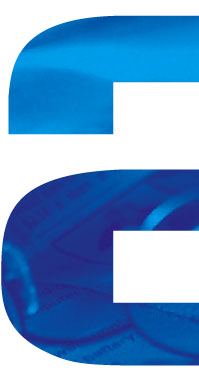artax
N E W S L E T T E R
| Author: Circulation: 20’000 (distributed electronically) |
Dr. iur. Bernhard Madörin Tax and Fiduciary Expert Licensed Audit Expert RAB Licensed Insurance Intermediary FINMA |
Billag decision:
2’300 local authorities under pressure – and claim back VAT!
Dear Sir or Madam,
Recently, the Swiss Federal Supreme Court reached the decision that value-added tax, as levied by Billag (Switzerland’s TV licence fee authority), is unconstitutional (Judgement 2C_882/2014 from 13/4/2015 – FSC publication). In the case of TV licence fees, the non-existent of exchange of services led to the court rejecting a duty for TV licence holders to pay VAT to Billag. There is no exchange of services. An additional feature was the fact that the fees were levied on a sovereign basis. To sum it up: sovereignly levied fees without any exchange of services are not subject to value-added tax. The Federal Supreme Court referred to the visitors’ tax which is similarly not subject to VAT.
Advice: claim back VAT
Different organisations offer this service, in particular the Foundation for Consumer Protection (Stiftung für Konsumentenschutz, SKS). Download a certificate of authority and send the last bill.
Value-added tax and the compulsory consumption tax by Billag are part of a structure of levies. Exempting the TV licence fee from VAT could lead to far-reaching changes within the field of fees sovereignly levied by local authorities.
So-called expenditure taxes in particular, like the Swiss motorway sticker, will come under the spotlight after this decision and launch a discussion about whether infrastructure charges are subject to VAT.
Now quite a number of local authorities offer services and supplies that are affected by this. When receiving tap water, the monopoly position of the supplier clearly shows that a supply has been made, thus drinking water is subject to 2.5% VAT. The same water becomes waste water at 8% VAT, and equally shows a provision of a service. Rather tricky is the situation for a fee for the water network. Subject to VAT? A service cannot be clearly recognised, and it rather seems to be an infrastructure charge than an exchange of services. As a consequence, even levies on networks could become subject to VAT. The same also applies when it comes to electricity. Is supplying a socket already a service that is subject to VAT if the potential recipient lacks choice because of the monopoly position of the network? The consequences following the Billag decision will have an influence on electricity bills. Please also note that the net as far as the property constitutes a service for the owner, whereas the further distribution which happens within the property and is to the benefit of the tenant (recipient of services).
It is a slightly more problematic matter when it comes to waste charges. When local authorities supply the service of waste disposal via a rubbish bag fee, this particular service is then subject to VAT. The revenue realised via waste stickers is also subject to VAT. If the local authority then levies a basic charge against the property owner for waste disposal which should cover supplying the infrastructure for waste disposal, then this service is not subject VAT. This levy is charged on the basis of a fees regulation, which means there is no exchange of services. The situation becomes a bit more difficult to evaluate if the service of waste disposal is generally charged without waster stickers against the property owner. Here the question arises whether an exchange of services exists or not. It can be assumed that this is not the case as the beneficiary is the tenant and not the property owner. For that particular reason such a levy is then subject to VAT.
However, there are local authorities that levy basic charges, beside actual usage of water and the amount of waste water, as a fixed contribution to the infrastructure. This is based on the principle of a fixed levy per capita to finance the infrastructure. The amount charged per capita is based on a sovereign scale of charges and fees which means that a concrete exchange of services is not obvious and thus is not subject to VAT.
The motorway sticker as an expenditure tax is not subject to VAT either. The same applies here: the specific service element is missing, in contrast to toll and motorway charges for specific stretches. These are non-existent in Switzerland, thus irrelevant.
It is highly recommended to specifically analyse the tax bill from the local authority. You will quite likely find one or other amount that should not be subject to VAT. In the case of Billag, the consumer had to go all the way, at cost, to the Federal Supreme Court. It would be welcome if the local authority would stick to its task of proper invoicing. The same applies for invoices from monopoly suppliers like electricity, water, gas, and so on. The merry dance has just started. Who will come out on top, the state or the guerrillas?
It will also be interesting to know the answer to the question of whether the panorama tax, to be introduced by 1 April 2016 for viewing platforms at 1’000 meters above sea level, will also be subject to VAT. The canton of Valais already has successfully appealed against it. At the Klein Matterhorn only half the amount of tax is due as the view towards Italy, due to the territoriality principle, is tax free.

